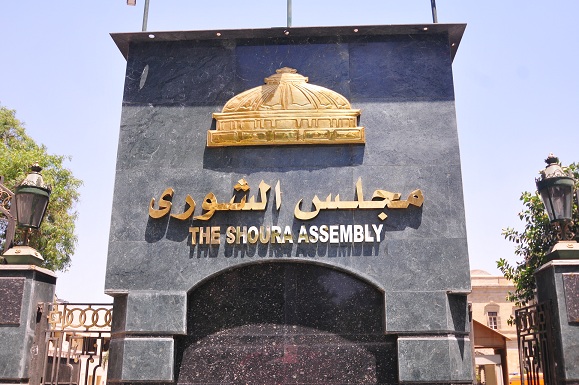By Ibrahim El-Masry
The Constitutional and Legislative Affairs Committee of the Shura Council approved the proposed draft constitution that contains ten chapters on general freedoms, the economy, the powers of the state, the role of the judiciary, the armed forces, and local governance.

The chapter on the economy follows a comprehensive growth plan that concentrates on raising GDP, achieving a just distribution of wealth, raising living standards, eliminating unemployment, connecting wages to production, and setting a minimum wage, tying it to the price level with a yearly review.
Article 22 of the draft constitution states that economic activity in the private sector is free as long as it does not damage society, threaten security, or impinge on the people’s freedoms and dignity. The article also states that relations between economic actors should agree with the principles of social justice and that the government should work to ensure that every citizen receives a share of GDP.
Article 26 states that preserving the means of production is a national duty and that workers have a right to participate in the administration of projects and to benefit from their work. The article calls for even low ranking farmers and workers to have representation in cooperative administration councils. The article calls on the state to foster cooperative industrial and professional institutions as well as small enterprises.
Article 33 prohibits nationalisation unless it is carried out in accordance with the law, is in the public interest, and includes just compensation. The article prohibits the confiscation of money unless it is carried out by court order.
Article 37 stipulates that the tax regime will be based on the principles of social justice and that it cannot be amended except by the law. The article states that no citizen is exempt from taxes except in cases determined by the law.
The new constitution contains provisions guaranteeing that the state use Egypt’s natural resources to achieve the maximum benefit for the people. In addition, the constitution calls for clear laws and procedures concerning the state’s budget and its expenditures.
The Financial and Economic Committee of the Shura Council discussed the issue of investment and addressing the problem of unemployment. The committee stressed the need to concentrate on labour intensive industries and to develop a plan to attract greater investment Egypt.
Mohamed Al-Fiqy, chairman of the committee, stated that opportunities for investment in Egypt are great, especially in light of the country’s advantages such as the low cost of labour and subsidised energy prices that are a quarter of global prices.
He added that the country’s large market, which contains 90 million consumers as well as Egypt’s adventitious geographical location, makes it an attractive investment destination. He expressed hope that large industrialised countries would turn to Egypt as a manufacturing hub and as a waypoint for goods shipped to other countries in Africa and the Middle East.
Members of the committee called on the state to encourage private enterprise and to pay greater attention to small and medium sized enterprises (SMEs), stressing the fact that creating stricter laws to eliminate corruption will work towards the reduction of unemployment rates.
The Committee, in conjunction with the General Authority for Investment, will hold another meeting to assemble a report on how to encourage greater domestic and foreign investment in Egypt. The report will be submitted to the new cabinet once it is appointed.



